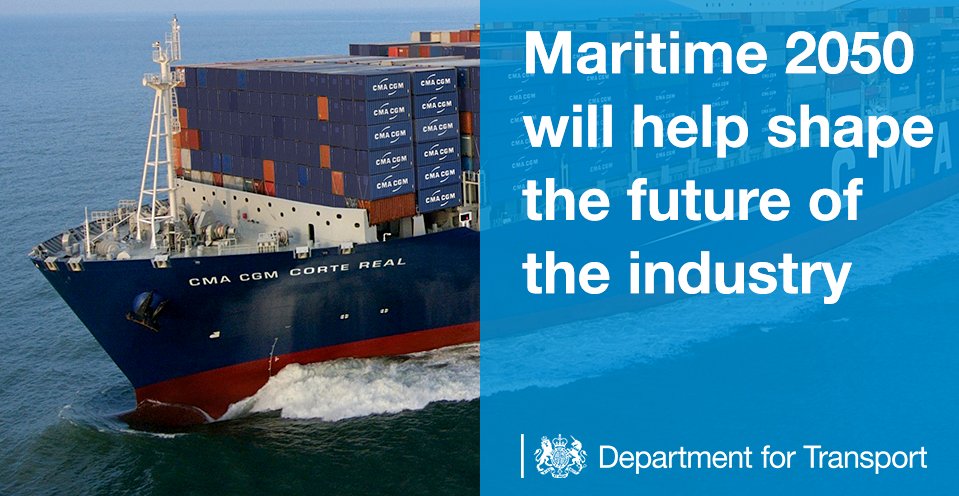|
S2 CONSULTATIONS - CLEAN MARITIME PLAN 2050
Please use our A-Z INDEX to navigate this site or return HOME
|
|
Chris
Grayling and Nus Ghani
<<<< SECTION 1 - TACKLING EMISSIONS
52. The Clean Air Strategy, published in
January 2019, sets out the Government’s plans to address air pollution across the
UK, setting out the comprehensive actions needed across all parts of government and
society to improve air quality [53]. The strategy
● A Call for Evidence to explore the
emissions from vessels operating domestically within the UK, including inland waterways. The
aim of this work is to collect a body of evidence that will give a clearer picture of the extent
of emissions from domestic and inland
● Guidelines to advise ports on how to develop effective and targeted Air Quality Plans. These Plans will set out commitments by individual ports to reduce emissions from their operations and to support the reduction of emissions from their customers. Following publication on these guidelines, ports within scope will be asked to make initial commitments by 31 December 2019 and to produce their plans in June 2020.
53. The Clean Air Strategy also includes a further commitment to publish the Clean Maritime Plan, and to establish a Clean Maritime Council. The Council was launched by Minister Nusrat Ghani in October 201854. A strategic advisory body made up of industry representatives, academics and key government departments, the Council has played a vital role in reviewing and developing the Clean Maritime Plan. The Council formed three ‘Task and Finish Groups’, drawing representation from beyond its core members. These ‘Task and Finish Groups’ were focused on the topics of Incentives, Standards and Regulations, and Energy Systems Integration. The work of these three groups was fed back to the main Council and presented at a large industry workshop held in March 2019. The Clean Maritime Plan workshop was attended by over 85 key industry stakeholders, helping ensure that the Plan brings in the varied views from across sector. To complement this consultation, the Government also commissioned a package of economic and technical research to provide a detailed evidence base for the Clean Maritime Plan. This research is available online [55].
54. The following sections of the document set out the key policy commitments of the Clean Maritime Plan in more detail. Based on analysis of feedback from the Clean Maritime Council, policy is broken down into four main areas:
● Economics
55. Policy commitments are set out in each area, alongside key elements of consultation feedback and relevant findings from economic and technical research. Finally, there follows a mapping exercise highlighting the links between the policy commitments of the Clean Maritime Plan and the recommendations in Maritime 2050.
Governance
56. The policy commitments of the Clean Maritime Plan will be implemented over the coming years, with advice from the Clean Maritime Council, which may draw on wider stakeholder views. The Council will keep oversight of progress against the policy commitments and ambitions.
57. The Government will publish a review of implementation of the Clean Maritime Plan in 2022. At this stage, the operation of the Clean Maritime Council will be reviewed.
58. While the Clean Maritime Plan deals
only with those Maritime 2050 recommendations relating to zero emission shipping, the
other environmental recommendations of Maritime 2050 are also of key importance. Progress
against these recommendations will be monitored through the wider Maritime
2050 reporting process. This Annual Report will also report on progress against
those recommendations of Maritime 2050 which fall outside the scope of the Clean
Maritime Plan.
SECTION 1 - TACKLING EMISSIONS:
14
- 50
Grant Shapps - Secretary of State for Transport 2021
The
Knowledge Transfer Network is Innovate UK’s network partner, and also provides innovation networking for other funders in line with its mission to drive UK growth.
LINKS & REFERENCE
https://
Please use our A-Z INDEX to navigate this site
|
|
|
This website is Copyright © 2021 Jameson Hunter Ltd
|



